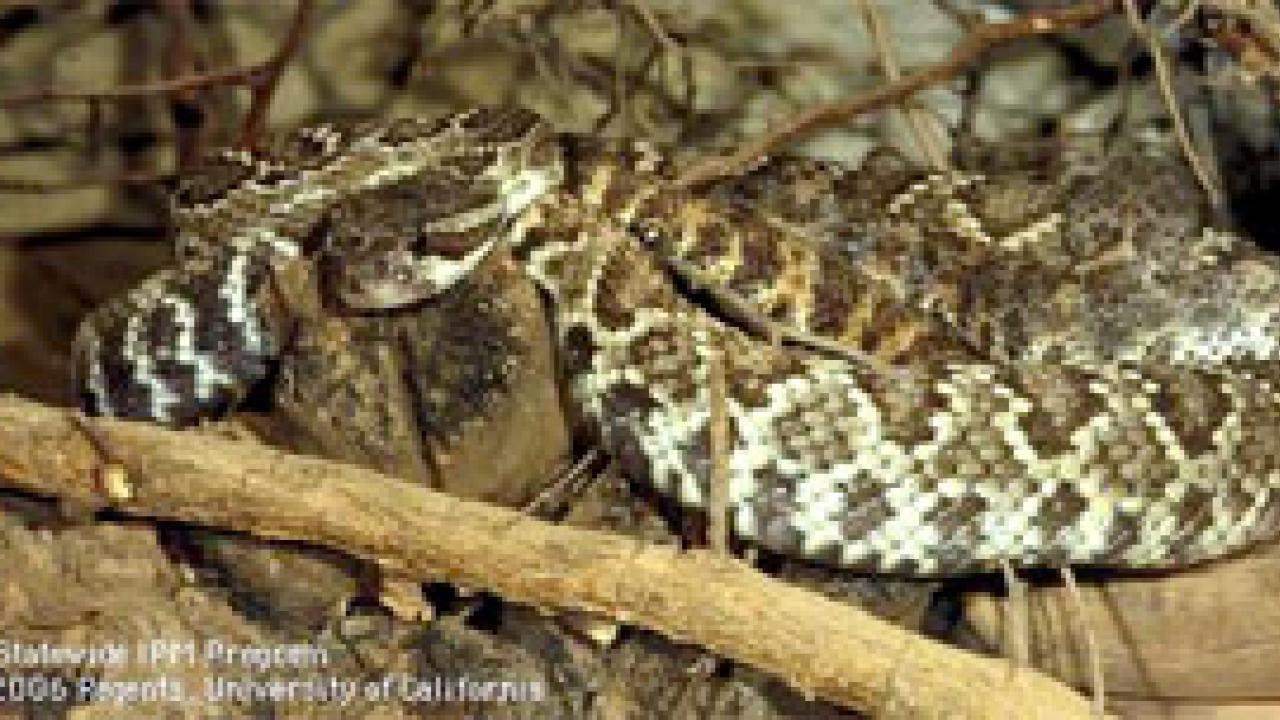For veterinarian Karl Jandrey, rattlesnake season has already begun.
Jandrey treats small animal emergency cases at the Veterinary Medical Teaching Hospital of the UC Davis School of Veterinary Medicine. "The last weekend of April, our first snakebite case of the year -- a dog -- arrived in the Emergency Service," he says. "Fortunately, the animal recovered, but we expect more cases between now and October, the most common time for snake encounters to occur."
An estimated 150,000 rattlesnake bites of dogs and cats take place nationwide each. The Veterinary Medical Teaching Hospital also treats horses and other animals, so it definitely pays to be aware of the risks. California is home to several rattlesnake species.
Snakebites in dogs, cats and horses usually occur on the face or limbs. Wounds vary widely in severity. The amount and type of venom differs with each situation, and some rattlesnake bites -- up to 25 percent -- contain no venom at all.
One or more puncture marks, swelling and bleeding indicate a rattlesnake bite, says Jandrey. These signs may be accompanied by pain, agitation or depression in the animal. The Mojave green rattlesnake's venom, a nerve toxin, may cause weakness or seizures.
What should you do if a snake bites your pet?
"Seek veterinary help as soon as possible and stay calm," Jandrey says. "We can treat the animal aggressively with fluid therapy, pain control, antivenin and monitoring of the animal's condition overnight." He noted that the teaching hospital stocks antivenin -- the antidote for snake venom -- for its patients.
While some veterinarians carry a commercial preventive rattlesnake vaccine, the teaching hospital does not stock the product, according to Valerie Wiebe, pharmacy coordinator there.
"Due to the complex makeup of venom in different species and regions, as well as a lack of objective clinical trials to date, teaching hospital faculty currently do not advocate the vaccine for their patients," Wiebe said.
To prevent snakebites in pets, experts advise becoming familiar with common local species. Keep rattlesnakes out of home and garden by removing rodents and potential snake nesting sites. While hiking, keep pets on a leash, stay on trails and avoid areas of tall grass, rocks or woodpiles.
Media Resources
Pat Bailey, Research news (emphasis: agricultural and nutritional sciences, and veterinary medicine), 530-219-9640, pjbailey@ucdavis.edu
Lynn Narlesky, Veterinary Medicine dean's office, (530) 752-5257, lnarlesky@ucdavias.edu
